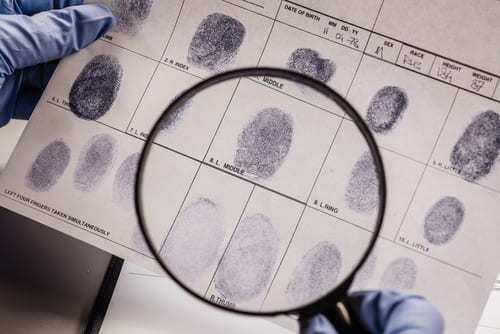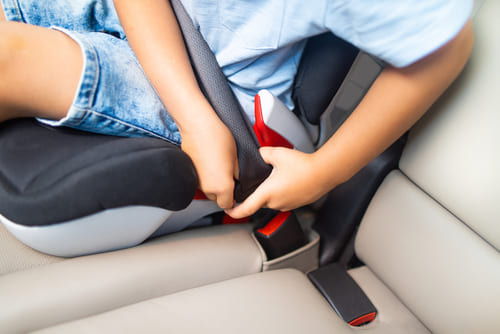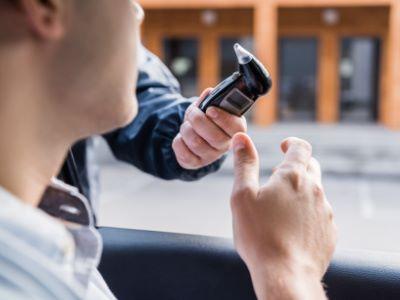Recent Blog Posts
Is the Crime of Drunk Driving Resulting in Injury a Misdemeanor or Felony in California?
 In California, a charge of drunk driving resulting in injury can be classified as either a misdemeanor or felony, depending on various factors surrounding the case. Understanding the distinctions between misdemeanor and felony DUI charges in California is crucial, particularly if you are facing charges and seek legal guidance as to what you can do to improve your situation. While many experience a sense of helplessness when facing serious criminal charges, do not fall into despair, for there are options at your disposal. Your first move should be contacting a criminal defense lawyer to safeguard your rights as you move through the process.
In California, a charge of drunk driving resulting in injury can be classified as either a misdemeanor or felony, depending on various factors surrounding the case. Understanding the distinctions between misdemeanor and felony DUI charges in California is crucial, particularly if you are facing charges and seek legal guidance as to what you can do to improve your situation. While many experience a sense of helplessness when facing serious criminal charges, do not fall into despair, for there are options at your disposal. Your first move should be contacting a criminal defense lawyer to safeguard your rights as you move through the process.
How Will a California DUI Affect My Pilot’s License?
 If you are a pilot who lives in California or who is visiting the state, and you have been arrested and charged with DUI, it is important to understand the potential impact these charges may have on your career. Driving under the influence (DUI) is not only a serious criminal offense, but it can also have severe consequences for professional license holders, including pilots who fly planes or other aircraft for a living. The Federal Aviation Administration (FAA) has strict regulations regarding disclosures of alcohol-related offenses, and it may take disciplinary action against pilots who violate these rules. To defend against the loss of your pilot’s license, you can work with an attorney who has experience representing pilots and others who have been charged with DUI.
If you are a pilot who lives in California or who is visiting the state, and you have been arrested and charged with DUI, it is important to understand the potential impact these charges may have on your career. Driving under the influence (DUI) is not only a serious criminal offense, but it can also have severe consequences for professional license holders, including pilots who fly planes or other aircraft for a living. The Federal Aviation Administration (FAA) has strict regulations regarding disclosures of alcohol-related offenses, and it may take disciplinary action against pilots who violate these rules. To defend against the loss of your pilot’s license, you can work with an attorney who has experience representing pilots and others who have been charged with DUI.
FAA Disclosures
As an aviation professional, you are required by law to report any motor vehicle actions involving alcohol or drugs to the FAA. Applicable motor vehicle actions include DUI convictions as well as administrative license suspension or revocation actions. Even if you are not convicted of DUI, you must report license suspensions following the failure of a chemical blood alcohol test or the refusal to take a chemical test
What Are the Penalties for DUI With a Child Passenger in California?
 Driving under the influence (DUI) is a serious offense that can have severe consequences. When a driver chooses to get behind the wheel after consuming alcohol or drugs, they put the safety of themselves and their passengers at risk, including children, who will be likely to be seriously injured if a drunk driver is involved in a car accident.
Driving under the influence (DUI) is a serious offense that can have severe consequences. When a driver chooses to get behind the wheel after consuming alcohol or drugs, they put the safety of themselves and their passengers at risk, including children, who will be likely to be seriously injured if a drunk driver is involved in a car accident.
In California, driving under the influence with a child passenger in the vehicle is considered an aggravated form of DUI. The state takes this offense very seriously, and drivers in these situations may face harsh penalties that are meant to prevent people from committing such dangerous acts. If you are facing charges for DUI with a child passenger in California, an experienced attorney can help you understand what you may be up against while ensuring you can take the correct steps to defend against a conviction.
Potential Penalties for DUI With Child Passenger
The penalties for DUI offenses involving child passengers vary depending on several factors including:
Can Breathalyzer Test Results Be Challenged in DUI Cases?

If you have been charged with DUI (driving under the influence) in California, one of the key pieces of evidence against you may be the results of a breathalyzer test. These tests are commonly used by law enforcement to determine a driver's blood alcohol concentration (BAC). However, it is important to understand that there are a variety of ways that breathalyzer test results may be challenged in DUI cases. An experienced attorney can review your case and help you determine your best options for defense, including challenging the evidence against you or using other strategies to help you avoid a conviction.
The Accuracy of Breathalyzer Tests
Breathalyzer tests are designed to estimate a person's BAC based on their breath sample. These tests will be performed at a police station after a driver is arrested for DUI. Under California’s implied consent law, if a driver is asked to take a breathalyzer test after being arrested and refuses, their driver’s license will be suspended. The most common type of breathalyzer used is known as an evidential breath testing (EBT) device, which measures the amount of alcohol present in a person’s breath and converts it into an estimated BAC.
When Will Police Pull Someone Over for DUI in California?
 Driving after drinking alcohol or using drugs can be very dangerous. The use of these substances can impair a person’s ability to operate a vehicle safely, and it greatly increases the chances of an accident occurring in which people may suffer serious harm. Because of this, driving under the influence (DUI) is a serious offense in California. Law enforcement agencies throughout the state work diligently to enforce DUI laws and keep the roads safe for all drivers. But when can police officers legally pull someone over for suspected drunk driving? In order to perform a traffic stop, they must have reasonable suspicion that a driver is impaired. If you have been arrested for DUI, but you are unsure about whether there was a valid reason to pull you over, an experienced attorney can help you understand how to address this issue.
Driving after drinking alcohol or using drugs can be very dangerous. The use of these substances can impair a person’s ability to operate a vehicle safely, and it greatly increases the chances of an accident occurring in which people may suffer serious harm. Because of this, driving under the influence (DUI) is a serious offense in California. Law enforcement agencies throughout the state work diligently to enforce DUI laws and keep the roads safe for all drivers. But when can police officers legally pull someone over for suspected drunk driving? In order to perform a traffic stop, they must have reasonable suspicion that a driver is impaired. If you have been arrested for DUI, but you are unsure about whether there was a valid reason to pull you over, an experienced attorney can help you understand how to address this issue.
The Requirement for Reasonable Suspicion
In order to make a valid traffic stop, a law enforcement officer must have a "reasonable suspicion" that a person has violated the law. The concept of reasonable suspicion comes from Supreme Court decisions that have found that unnecessary stops and searches by police officers are violations of people’s rights.
What Is Aggravated DUI in California?
 Driving under the influence (DUI) is a serious offense in California, and even a first-time DUI can have serious consequences. However, when certain aggravating factors are present, a DUI charge can carry harsher penalties. For those who have been arrested for drunk driving, understanding when felony DUI charges may apply is crucial. An experienced attorney can provide guidance on how to address these issues and defend against a felony conviction.
Driving under the influence (DUI) is a serious offense in California, and even a first-time DUI can have serious consequences. However, when certain aggravating factors are present, a DUI charge can carry harsher penalties. For those who have been arrested for drunk driving, understanding when felony DUI charges may apply is crucial. An experienced attorney can provide guidance on how to address these issues and defend against a felony conviction.
Understanding DUI Laws in California
In California, it is illegal to operate a motor vehicle with a blood alcohol concentration (BAC) of 0.08 percent or higher for most drivers over the age of 21. For commercial drivers, the legal limit is lower at 0.04 percent, while for minors under 21 years old, any measurable amount of alcohol can lead to a DUI charge.
What Are the Penalties for DUI Involving Injuries or Death?
 Driving under the influence (DUI) is a serious offense that can have long-term consequences. Because drivers who are under the influence of alcohol or drugs pose a danger not only to themselves but also to others on the road, they may face serious penalties if they are arrested and convicted of offenses related to DUI. In cases where a DUI results in someone else’s injury or death, the penalties are likely to be even more severe. For people who may face these types of charges, it is important to secure legal representation from an attorney who can help defend against a conviction or seek reduced penalties.
Driving under the influence (DUI) is a serious offense that can have long-term consequences. Because drivers who are under the influence of alcohol or drugs pose a danger not only to themselves but also to others on the road, they may face serious penalties if they are arrested and convicted of offenses related to DUI. In cases where a DUI results in someone else’s injury or death, the penalties are likely to be even more severe. For people who may face these types of charges, it is important to secure legal representation from an attorney who can help defend against a conviction or seek reduced penalties.
Penalties for DUI Resulting in Injury
A person who is accused of causing someone else to suffer a bodily injury because the person was driving while intoxicated may face a number of harsh legal consequences. The penalties vary depending on factors such as prior convictions and the seriousness of the injuries:
What is Rising Blood Alcohol in Criminal DUI Cases?
 Driving under the influence (DUI) cases are common cases that are very serious in nature, with a conviction on such charges levying severe legal and personal consequences. However, with advancements in scientific research and the growing understanding of the complexities surrounding blood alcohol concentration (BAC) levels, new defense strategies for DUI have emerged. Today, we will explore the rising blood alcohol defense, a defense strategy gaining traction in many DUI cases across California. Luckily, legal professionals are available for those who have been charged with DUI, greatly increasing the chances of pursuing a case outcome that is favorable to the individual charged.
Driving under the influence (DUI) cases are common cases that are very serious in nature, with a conviction on such charges levying severe legal and personal consequences. However, with advancements in scientific research and the growing understanding of the complexities surrounding blood alcohol concentration (BAC) levels, new defense strategies for DUI have emerged. Today, we will explore the rising blood alcohol defense, a defense strategy gaining traction in many DUI cases across California. Luckily, legal professionals are available for those who have been charged with DUI, greatly increasing the chances of pursuing a case outcome that is favorable to the individual charged.
Understanding What Rising Blood Alcohol Means
This DUI defense strategy is centered around the concept that an individual’s BAC was not above the legal limit while operating a vehicle but increased to an unlawful level of 0.08 percent after driving. The defense argues that the BAC measurement at the time of testing was higher than the actual level while driving due to the body’s metabolism processes.
Defense Strategies for Underage DUI Charges: Protecting Your Future
 Facing charges for driving under the influence (DUI) as an underage individual can be extremely daunting and have long-lasting consequences. However, it is important to remember that everyone deserves a fair defense. With strategic legal steps, there are defense strategies that can be utilized to protect your rights and ensure a favorable outcome. This blog aims to explore some effective defense strategies for those who find themselves facing underage DUI charges. If you are a juvenile facing DUI charges, contact an experienced criminal defense attorney to begin the process of building your defense and protecting your future.
Facing charges for driving under the influence (DUI) as an underage individual can be extremely daunting and have long-lasting consequences. However, it is important to remember that everyone deserves a fair defense. With strategic legal steps, there are defense strategies that can be utilized to protect your rights and ensure a favorable outcome. This blog aims to explore some effective defense strategies for those who find themselves facing underage DUI charges. If you are a juvenile facing DUI charges, contact an experienced criminal defense attorney to begin the process of building your defense and protecting your future.
Defense Strategies for an Underage DUI
Here are some defense strategies to consider if you are juvenile facing DUI charges, including:
-
Challenging the traffic stop – One common defense strategy is challenging the legality of the traffic stop itself. In order to stop a vehicle, law enforcement officers must have reasonable suspicion or probable cause. If there was no valid reason to initiate the traffic stop, evidence gathered thereafter may be inadmissible. By examining the circumstances surrounding the traffic stop, an attorney well-versed in underage DUI matters can work towards invalidating the evidence, potentially leading to a dismissal of the charges.
Considerations for a First-Time DUI in California
 Facing charges for driving under the influence (DUI) can be a very stressful and frightening experience, especially for first-time offenders. In California, penalties for DUI can be steep, and understanding your legal options is essential in order to fight the charges against you and to try and obtain a favorable case outcome. If you have been arrested for a first-time DUI, contacting a DUI defense attorney is essential, as a DUI conviction can have seriously detrimental consequences. While hiring a lawyer does not by any means guarantee an acquittal, it does ensure your rights and interests will be safeguarded at all times.
Facing charges for driving under the influence (DUI) can be a very stressful and frightening experience, especially for first-time offenders. In California, penalties for DUI can be steep, and understanding your legal options is essential in order to fight the charges against you and to try and obtain a favorable case outcome. If you have been arrested for a first-time DUI, contacting a DUI defense attorney is essential, as a DUI conviction can have seriously detrimental consequences. While hiring a lawyer does not by any means guarantee an acquittal, it does ensure your rights and interests will be safeguarded at all times.
Keep These Things in Mind
Here are some essential considerations if you have been charged with a first-time DUI, including:
-
Call a specialized DUI attorney – If you are facing a first-time DUI charge, you must hire an attorney specializing in DUI cases. Your attorney will work closely with you to develop your defense and choose the most appropriate strategy for your situation.
 415-729-7300
415-729-7300




